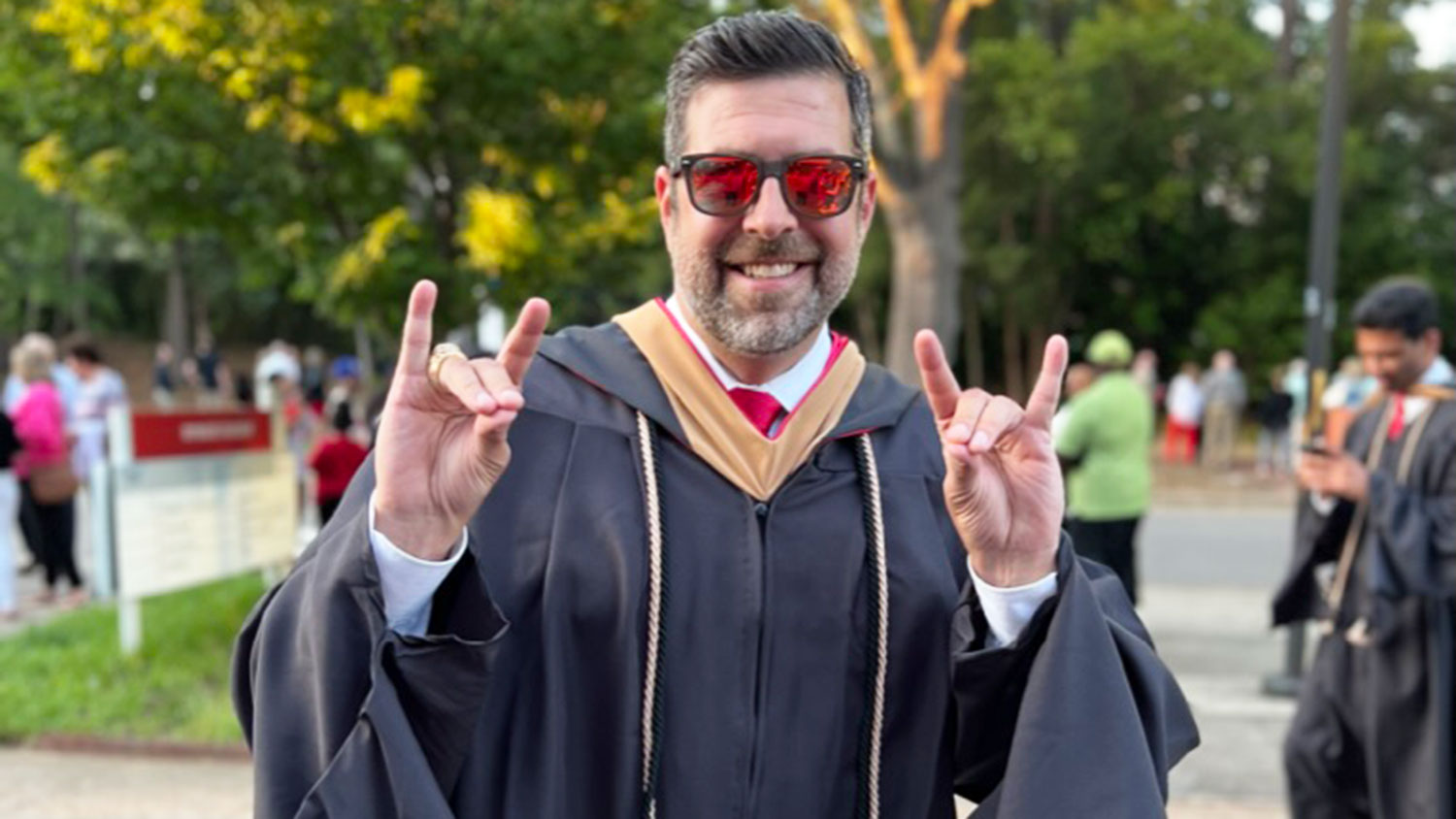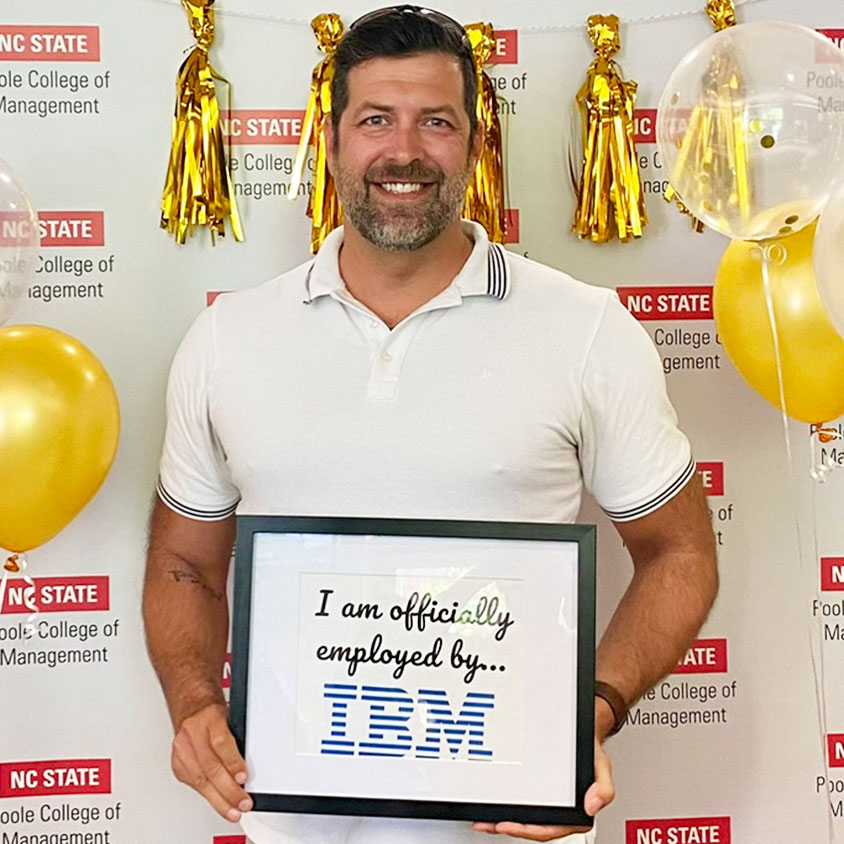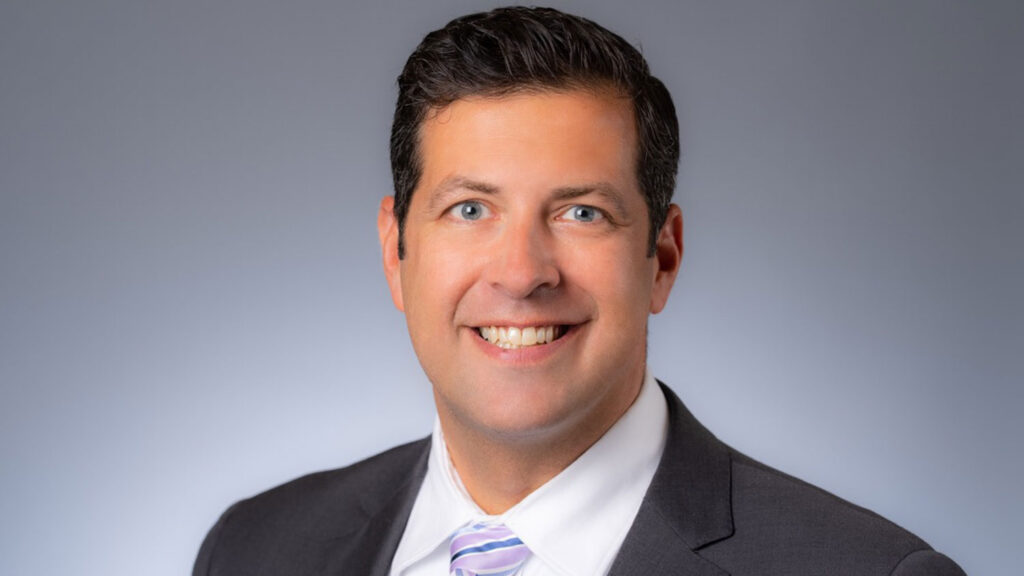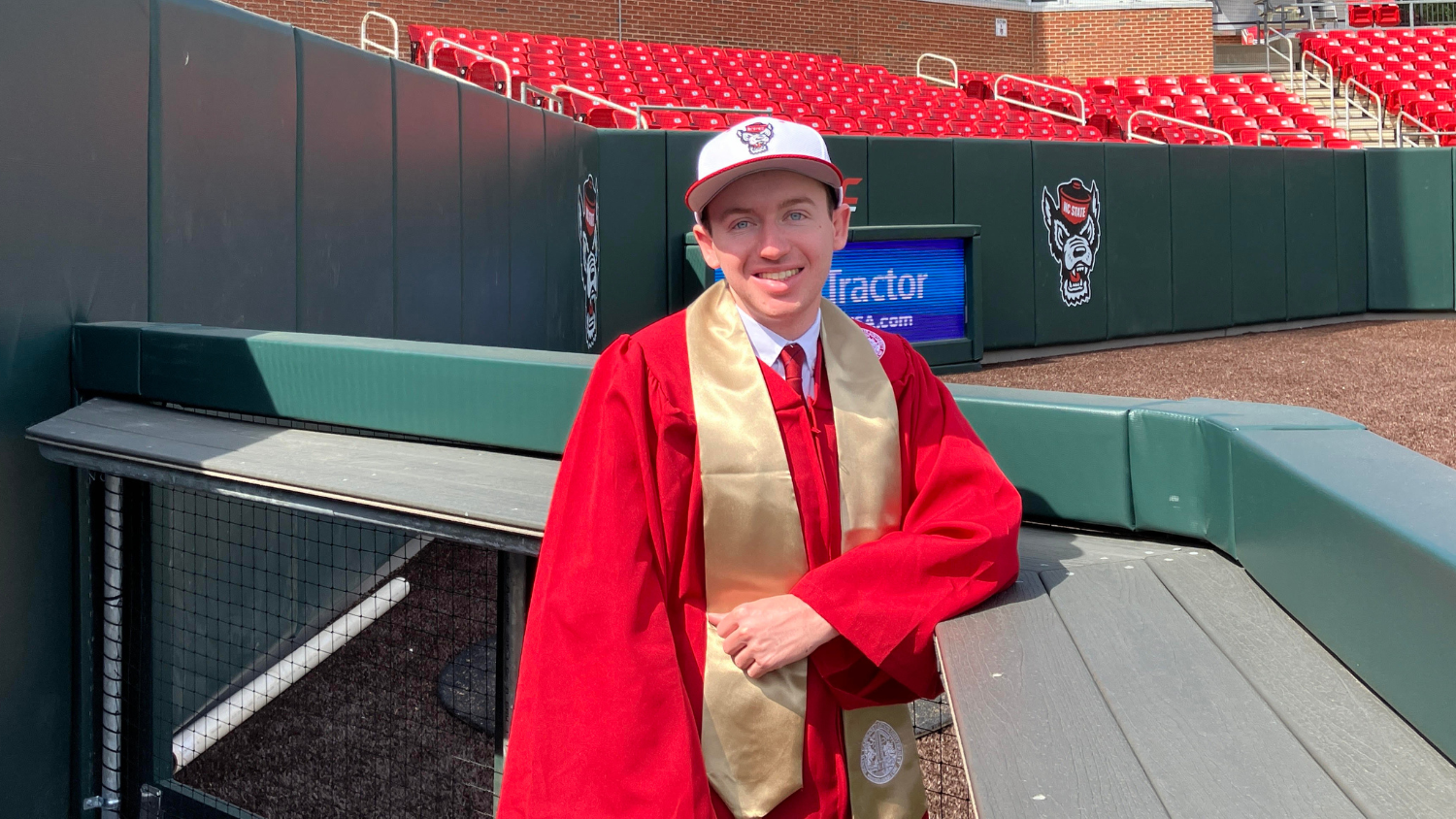Retired Army Officer Finds His Place at Poole and in the Workplace
From ‘blank slate’ to full-time job, the Poole College Career Center helped Jenkins MBA grad Luke Hale find and follow a path.

Luke Hale’s U.S. Army service filled an extended chapter in his life. When he retired as a lieutenant colonel after more than 20 years in the military, he was young enough for a long second career.
That’s when he realized something: “I was a blank slate,” the 2023 Jenkins MBA graduate recalls.
As someone who entered the Army directly after graduating from Virginia Military Institute, he had no professional experience as a civilian.
Hale’s interest in business motivated him to pursue an MBA. With roots in Raleigh, he was drawn to the “think and do” mentality that’s a cornerstone of an NC State and Poole College education.
Poole’s small, welcoming student cohorts and accessible, supportive faculty also appealed to him. “It’s very personalized,” Hale notes.
So is Poole’s proactive Career Center.
With immediate and ongoing career guidance and resources during his time at Poole, Hale credits the center with helping him land his current position as an IBM product manager at Research Triangle Park.
The MBA program led him to a path “to live in a real-world business culture. It helped me understand what kind of environment I’d be working in,” he says.

The Career Center steeped Hale in the business culture, starting during MBA orientation week.
Hale and his classmates reviewed their resumes and LinkedIn pages with center staff member Annie Murray, attended webinars with various employers, discussed networking, had mix-and-mingle events and engaged in other activities.
“It was a full-on career search that was really baked into our process,” Hale says. At the end of the first week, students attended a networking event with employers interested in hiring MBA graduates. “It set the tone to get out there.”
Transitioning from the military to the business world, he learned how to assure prospective employers that the strengths he developed in the Army are adaptable — and vital — in the corporate world.
“Most college career centers set up shop and expect you to go to them. At Poole, they were very much in our orbit, making themselves available frequently.”
Poole’s Career Center — and many one-on-one discussions with Murray — were invaluable.
“Most college career centers set up shop and expect you to go to them. At Poole, they were very much in our orbit, making themselves available frequently,” says Hale, who, at one point in his military service, helped Army intelligence officers with their career management efforts.
Through guidance from the Career Center, Hale was paired with an IBM professional in the company’s Pathfinder Mentoring Program. That led to an internship in an IBM leadership program for future business executives.
And that experience, less than a year later, helped Hale land his full-time IBM position.

“Poole’s Career Center helped me build the tools and confidence and understand my personal brand, which truly led up to the opportunity I eventually took,“ he says.
As product manager for business automation, Hale focuses on digital labor and incorporating AI into various processes. He works with go-to-market strategies and client advocacy and heads a customer advisory board.
The skills he learned in Poole’s Technology Entrepreneurship and Commercialization (TEC) certificate program are helping him succeed at IBM. Hale worked with a team of fellow MBA students and NC State engineering students on a project to solve a problem for a real business client.
“It was that realism attached to the hands-on aspect that had an impact on me,” he says. “TEC has been a great tool and resource.”
So was the Career Center, where Murray helped him find a place to start a promising new work life with the strengths he gained in the MBA and TEC programs.
“If you’re at a pivot point in your professional career, that’s the time when you come to Poole’s MBA program to find a direction and build your skills,” Hale says.
He considers the Jenkins MBA program to be a three-legged stool, with academics and the real-world, hands-on application of skills as two foundations. “The third important leg is the Career Center,” he notes. “It’s a critical part of your education as you go through the program.”


